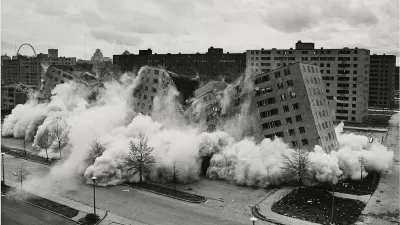With a lack of suitable rental units and a lack of willing landlords, the city of Pittsburgh provides a case study for the failure of the Housing Choice Voucher Program to live up to its potential.
"It can take years to get a Section 8 voucher in Pittsburgh. But it takes just four months to lose it," according to an article by Kate Giammarise. The threat of losing a voucher refers to the 120-day time limit for finding a qualifying residence once a recipient has received a voucher. The time limit is especially problematic due to a shortage of units and a lack of landlords willing to accept subsidized rent.
Under the Housing Choice Voucher Program, or Section 8, as it's commonly known, "[a] family that receives a voucher must find a rental unit that meets a minimum standard and can pass a quality inspection. A subsidy is then paid by the housing authority administering the program directly to the landlord; the family pays the difference between the actual rent and the subsidy."
The key problem examines in the article is the willingness of landlords to accept vouchers, which often forces program recipients to lose their vouchers. Vouchers expire frequently enough that the Neighborhood Legal Services Association employs families who have lost vouchers.
More evidence of the vouchers' failure to live up to the promises of the program: the amount of money spent by the city compared to the amount of money the city receives for the program. "In 2013, the Housing Authority of the City of Pittsburgh received $41.9 million in voucher funding from the federal government but spent only $29.8 million of that on voucher payments," reports Giammarise. In 2014, "$13 million of the Housing Authority of the City of Pittsburgh’s $43.2 million voucher allocation didn’t go to vouchers." The article details how that remaining money was used, and also cites a number of experts who describe possible steps for improving the program in the city of Pittsburgh.
FULL STORY: For those with Section 8 vouchers, finding suitable housing difficult

Trump Administration Could Effectively End Housing Voucher Program
Federal officials are eyeing major cuts to the Section 8 program that helps millions of low-income households pay rent.

Planetizen Federal Action Tracker
A weekly monitor of how Trump’s orders and actions are impacting planners and planning in America.

Canada vs. Kamala: Whose Liberal Housing Platform Comes Out on Top?
As Canada votes for a new Prime Minister, what can America learn from the leading liberal candidate of its neighbor to the north?

Washington State’s Parking Reform Law Could Unlock ‘Countless’ Acres for New Housing
A law that limits how much parking cities can require for residential amd commercial developments could lead to a construction boom.

Wildlife Rebounds After the Eaton Fire
Following the devastation of the Eaton Fire, the return of wildlife and the regrowth of native plants are offering powerful signs of resilience and renewal.

LA to Replace Inglewood Light Rail Project With Bus Shuttles
LA Metro says the change is in response to community engagement and that the new design will be ready before the 2028 Olympic Games.
Urban Design for Planners 1: Software Tools
This six-course series explores essential urban design concepts using open source software and equips planners with the tools they need to participate fully in the urban design process.
Planning for Universal Design
Learn the tools for implementing Universal Design in planning regulations.
Central Transportation Planning Staff/Boston Region MPO
Heyer Gruel & Associates PA
Institute for Housing and Urban Development Studies (IHS)
City of Grandview
Harvard GSD Executive Education
Regional Transportation Commission of Southern Nevada
Toledo-Lucas County Plan Commissions



























